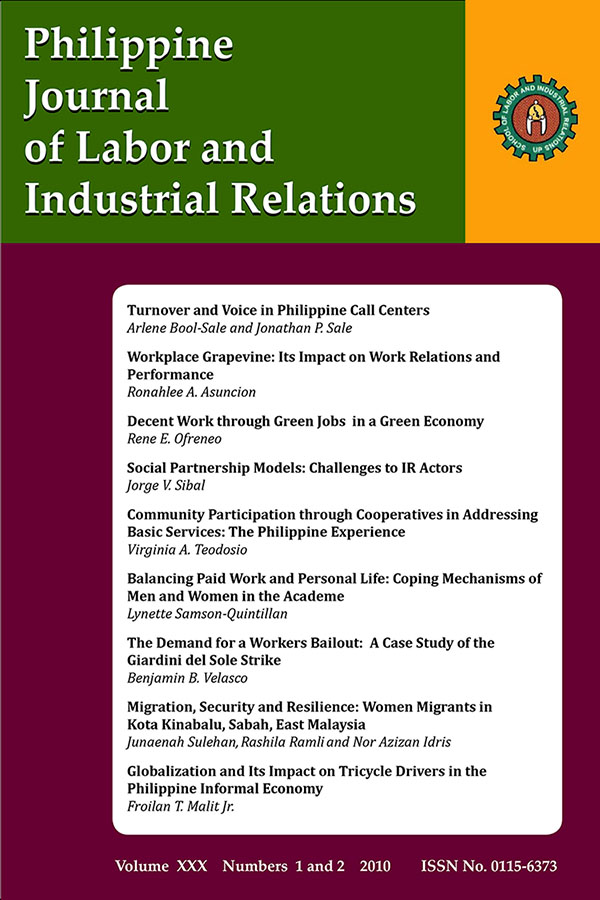Decent Work through Green Jobs in a Green Economy
Abstract
The Philippines is facing two difficult and intertwined environmental tasks: minimizing the adverse impact of climate change through varied mitigation/adaptation measures and restoring its degraded environment. The way forward for the country is to pursue these tasks with greater vigour, coherence and consistency in the context of the need to green the economy and the labor market. This green economic shift is value-adding, job-creating and a key to the creation of jobs that are both green (help restore the environment) and decent (promote dignity, security, equity and stability at work).
However, crucial to this greening process is the formulation of appropriate national action plans on environmental education, skills training and human resource development in support of this greening vision. These plans are not yet in place despite a law on the integration of environmental education at all levels, although there are significant education/skills initiatives by both the public and private sectors.
At the moment, there are no evident shortages or mismatches in environmental education and skills development, except in projects involving the importation of new technology, largely because the green shift is just starting. The challenge, therefore, is to strategize environmental education and skills development in anticipation of a green shift in the industrial, agricultural and services sectors, including the greening of the environment and the communities that are vulnerable to climate change risks.


